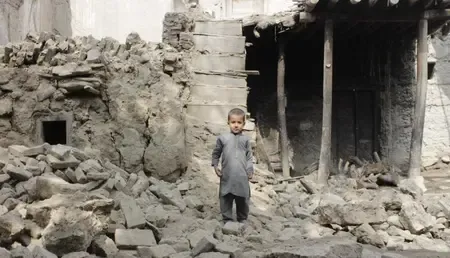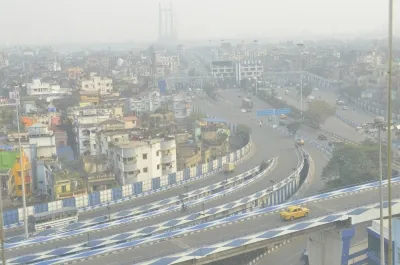What Challenges Are Rescue Teams Facing in Quake-Affected Regions of Afghanistan?

Synopsis
Key Takeaways
- Communication issues are a major barrier for rescue teams.
- The Hindu and Sikh communities are actively providing aid.
- Jalalabad is significantly impacted by the earthquake.
- International assistance is crucial yet limited.
- The Taliban regime is seeking global support.
New Delhi, Sep 3 (NationPress) Communication and connectivity hurdles are significant obstacles encountered by humanitarian aid workers in the provinces of Afghanistan impacted by the earthquake, as reported by the United Nations.
In a show of solidarity, members from the Hindu and Sikh communities within Afghanistan have combined their efforts to provide relief supplies for the victims affected by the earthquake in the eastern regions of the country.
Manjit Singh Lambe, the president of the Council of Hindu and Sikh Minorities of Afghanistan, informed Pajhwok news that the Sikh community, in collaboration with the diaspora abroad and the World Hindu Association, has dispatched humanitarian assistance for those impacted by the earthquake.
Jalalabad, a city that witnessed this devastation and was once visited by Sikh Guru Nanak Ji, is home to Gurdwara Guru Nanak Darbar. Current statistics on the Hindu and Sikh populations residing in Afghanistan are not readily available.
The European Union Agency for Asylum indicates that from a population exceeding 700,000 in the 1970s, only around 150 remained by the end of 2021.
A statement on the website of the organization representing Sikhs and Hindus in Afghanistan mentioned that in 2019, the now-dissolved Independent Election Commission of Afghanistan noted 1,105 registered Sikh and Hindu voters throughout the nation. Of these, 759 were located in Kabul, 342 in Nangarhar province, with merely four in Helmand.
Meanwhile, with fears that hundreds of thousands could be affected, United Nations officials on site reported that access was extremely limited in the critical 24 hours following the earthquake that struck on Sunday.
The relief and rescue operations faced delays due to landslides and rockfalls caused by the seismic activity. Some roads had already been obstructed by previous rockslides resulting from recent heavy rainfall.
Following the initial earthquake, which measured six on the Richter scale and struck near the Pakistan border on Sunday, the region has experienced multiple aftershocks, including another quake measuring 5.2 just two days later.
The Taliban regime, currently facing sanctions and aid reductions, has appealed to the international community for aid.
Although discussions are ongoing with around 40 countries, only Russia has formally recognized the regime.
India has already sent humanitarian supplies, including 1,000 tents and 15 tons of food. New Delhi has assured Kabul of its ongoing support in delivering medicines and food supplies.









